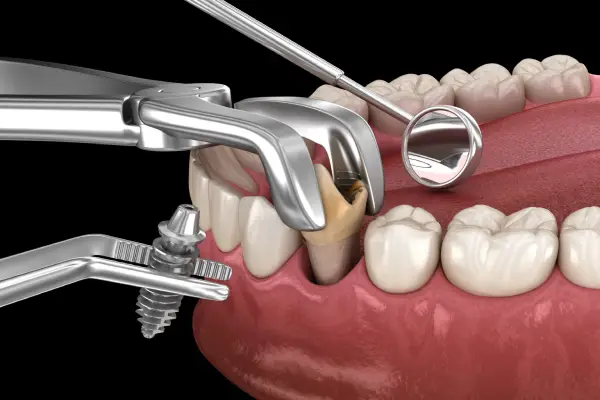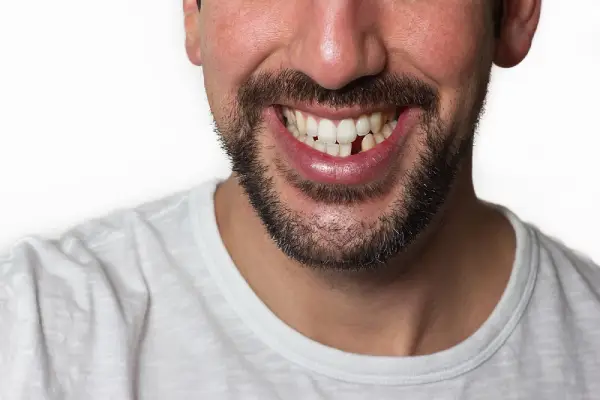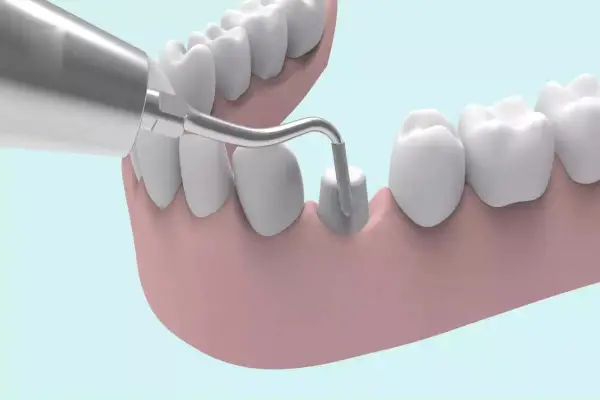Replacing missing teeth is more than just cosmetic; it should also be a health priority for you to maintain overall oral well-being. A missing tooth is, unfortunately, far more than just a gap in your smile, whether due to injury, decay, or periodontal disease.
Losing teeth can cause all sorts of issues, from interfering with eating and speech to even facial deformity due to bone loss. Fortunately, modern dentistry offers several options to replace missing teeth. Regrowth of teeth is not possible, but dental implants, bridges, and dentures can be used to restore your smile and function; however, each has advantages and disadvantages.
We will provide an overview of some available solutions so you can see which ones may be more suitable for your use case.

Why Replacing Missing Teeth Matters
Missing teeth can impact more than just your appearance; over time, they can also contribute to problems with other parts of the jaw structure. Moreover, untreated gaps make it difficult to eat and speak properly, leading to more complications over time:
Bone Health
Your teeth support the structure of your jawbone. If a tooth is lost, the bone used to support it will begin breaking down, eventually causing more tooth loss and changes in your facial features.
Teeth Alignment
If left untreated, these gaps can shift surrounding teeth, creating dental misalignment and bite problems. This can also result in more difficult access when cleaning your teeth, thus creating a predisposition to cavities or gum disease.
Chewing and Speaking
Untreated, missing teeth may harm your chewing ability. Can you imagine what will happen next without the right amount of food and nutrition access? Missing teeth also generally affect talking, particularly if they have been removed.
Self-Esteem
A missing tooth can significantly affect your confidence, making you look and feel awkward when socializing or even at work. Replacing lost teeth can also restore your confidence by restoring a beautiful smile and making it easier for you to find reasons to be optimistic about yourself, enhancing your quality of life.
Your Tooth Replacement Options
It’s important to research tooth replacements, as they affect your oral hygiene and confidence. Solutions such as dental implants, dentures, or bridges can serve the purpose you require them to. Suppose you are exploring your options for tooth replacement. In that case, this guide is here to help walk you through the most typical alternative solutions.
Dental Implants
Dental implants are among the most common ways to replace missing teeth. It may involve implanting a titanium post in the jawbone as a root to support a crown that looks like a natural tooth.
With proper care, dental implants can last a lifetime and are regarded as one of the most permanent forms of tooth replacement compared to traditional methods.
Dental implants look and feel like real teeth, mimicking the way natural teeth are supposed to function and blend with your smile. In addition, implants help save the bone by preserving the jawbone structure and preventing further loss due to empty spaces from missing teeth.
Although dental implants may be expensive compared to other tooth replacement options, they are considered an investment in the long run because of their strength and lifespan. The procedure involves minor surgery, as the implant is placed inside your jaw, and there will be a healing period, making it more of an ordeal than something like bridges or dentures.
Dental Bridges
A bridge is a procedure that replaces the gap between two healthy teeth with an artificial tooth. Crowns are placed on the teeth surrounding the small gap to be bridged.
Dental bridges are a non-surgical and increasingly attractive option for replacing a missing tooth. Modern bridges have been designed to be extremely aesthetically pleasing, perfectly blending in with the appearance of natural teeth, which means your smile is left seemingly flawless.
However, dental bridges have one significant disadvantage. However, they require replacing the healthy teeth near them, which causes those to weaken over time. Bridges also have a lifespan of 10 to 15 years before they may need to be replaced.
Want to read more: dental implants vs dentures
Partial Dentures
Partial dentures are removable devices that replace one or more missing teeth. They are held in place by your existing teeth using metal fasteners or precision attachments.
Partial dentures are typically more economical than dental implants or bridges, making them an economical way of replacing lost teeth. In other words, they offer a less invasive option for tooth replacement since the implant can be placed between your healthy teeth without surgery or affecting the surrounding teeth.
For some, partial dentures can be awkward to wear and may need time to adjust. In most cases, partial dentures will also be less stable than fixed solutions such as dental implants or bridges, which can affect how a patient functions on an everyday basis and their comfort during daily use.
Full Dentures
Full dentures are removable devices that fit over the top of the gum line and look like a set of full teeth. If you need to replace all your teeth, these are the most financially advantageous forms. They are also non-surgical, making them a less invasive option because they do not require surgery.
Full dentures may sometimes seem heavy, and as our mouths change slowly over the years, a need for adjustment to ensure an ongoing comfortable fit becomes clear. Furthermore, jawbone resorption can still occur without natural and stimulating implants, resulting in risks to long-term fit or stability.
Choosing the Right Option
The right tooth replacement for you may be determined by your level of missing teeth. In some cases, a simple gap can be filled, but when it comes to several, a more complicated solution should be considered. Bone health is essential because implants require enough density in the jawbone.
It also depends on your budget; the more durable options cost a bit more, but that expense is usually justified in the long run. Finally, your decision will be driven by personal choice, whether you prefer a non-surgical approach or if the permanence of implants is more appealing.
The Process at Dentist @ False Creek
We provide personalized care at Dentist @ False Creek so that you have the best treatment with our services designed just for your experience. It starts with an initial examination and consultation where we take a detailed health history and perform a comprehensive exam that includes dental X-rays and sometimes impressions or measurements of your mouth to help us understand your oral condition.
Based on that, a treatment plan is designed to explain how the procedure will be executed and the timeline and costs involved. We always use advanced technology and high-quality materials to obtain top-quality results.
Our entire treatment process is designed to be patient-centric, leading with your comfort from the start until the end. We then follow up after treatment with regular check-ups to ensure the longevity of your new smile and to assess any needs you may have.
Conclusion
In short, replacing missing teeth repair is vital for oral health and quality of life. Whether you receive dental implants, bridges, or partial or full dentures, each method has advantages and disadvantages. Your choice will depend on the number of missing teeth, your bone health, your budget, and what kind of treatment makes sense with your lifestyle. We ensure you get the smile that can help save your life right here at Dentist @ False Creek and provide customized care just for you.
FAQ
What is the most affordable way to replace missing teeth?
Dental implants are generally the most affordable long-term solution for replacing missing teeth. However, costs can vary depending on factors like location, materials, and number of implants needed.
Can I replace missing teeth?
The best option for you will depend on your specific situation, including the number of missing teeth, your overall oral health, and your budget.
How do you fix missing teeth without implants?
You can replace missing teeth without implants using dental bridges or dentures.
What is the best option for missing teeth?
The best option for missing teeth depends on your individual needs and budget.
Contact Us
Looking for a trusted dentist who understands your child’s dental needs? Our experienced dentists and caring staff are here to listen to your concerns patiently and provide you and your child with a wide range of specialized dental treatments and personalized attention in a stress-free, friendly, and welcoming environment. We believe that there is nothing more important than children’s health and happiness in the world!
Let’s create a shiny smile for your kid – book an appointment with Dentist@FalseCreeck today!
Doctor Consultation
Dentist @ False Creek Clinic in Vancouver to schedule an appointment and discuss your concerns with our experienced team.
Location
1681 Manitoba St Vancouver, BC V5Y 0B8



